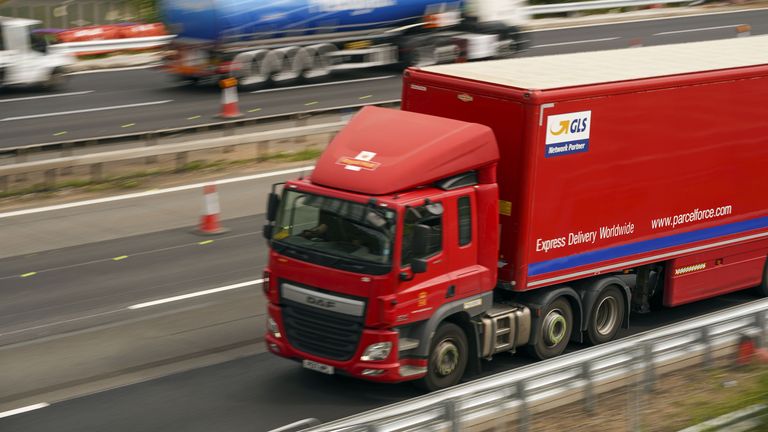An extra 2,000 training places will be available to increase the number of lorry drivers, but they are unlikely to have much effect before Christmas.
The places will be available through previously announced “skills boot camps” backed by £17m government funding and with participants being guaranteed a job interview afterwards.
But the courses do not begin until November and will last up to 16 weeks, meaning they might not be enough to alleviate fears of food shortages at Christmas.
The Office for National Statistics said that about one in six adults in Britain have been unable to buy essential food in the last fortnight, something that has been blamed on the shortage of HGV drivers.
The government last month announced courses for 3,000 people to train as drivers, and the latest 2,000 places revealed on Sunday will bring the total to 5,000.
AdvertisementEducation Secretary Nadhim Zahawi said: “To help more people into the industry, we’re expanding our skills bootcamps offer to support 5,000 people to gain the skills they need to be road ready, and to help those with previous experience refresh their skills so they can get back on the road.”
3 October: PM won’t rule out Christmas shortagesA further 1,000 people will be trained through schemes funded by the government’s education budget.
More on Supply Crisis Related Topics: supply crisisBut Labour said the new drivers, which Downing Street has acknowledged may not be “road ready” until February, will be only a “drop in the ocean”.
Shadow transport secretary Jim McMahon said: “This is a drop in the ocean and it’s clear the government is either unwilling or unable to grasp the scale of the challenge facing Christmas.
“The industry has warned that for Christmas food deliveries alone, an extra 15,000 drivers will be needed – not to mention the colossal gap ministers have already failed to plan for or properly address.
“If the prime minister does not treat this crisis with the seriousness that is required and show real ambition in tackling it, working people will continue to pay the price with rising costs, rocketing energy bills and bare shelves this winter.”
